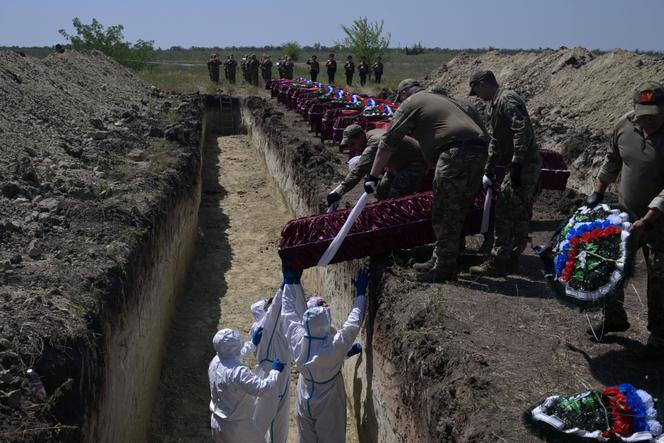
Two and a half years after launching his “special military operation” in Ukraine, Russian President Vladimir Putin is seeking to recruit new volunteers to fight on the front line. Russian authorities, both federal and regional, are promising huge salaries, tempting social benefits and substantial bonuses to attract recruits. They are also conducting propaganda campaigns in the streets, universities, social media and TV to encourage enlistment. “Join your people,” “Be a hero,” read posters across the country. “Defend the land of Kursk!” read another, more recent one, calling on men “up to 65” to join the “Bars-Kursk volunteer detachment” to liberate this Russian border region from the Ukrainian forces that have partly occupied it since August 6.
Pressed to fill recruitment quotas, certain regions are pulling out all the stops. “Bring a friend to the military office, and you’ll get 100,000 rubles,” or just under €1,000, said the new campaign launched on July 12, by Tatarstan, east of Moscow, a major supplier of recruits. Tempted by the sums promised, 385,000 men signed contracts between January and December 2023, according to the Russian Defense Ministry. To attract even more volunteers, Putin decided in July to double the monthly pay of contract personnel from 195,000 rubles (€1,910) to 400,000 rubles (€3,900), a sum that the regions are expected to match. This is 10 times more than the average salary.
Upon hiring, servicemen receive an additional lump-sum bonus of 1.2 million rubles (over €11,500). This tax-free income is accompanied by a number of privileges for servicemen and their families, including preferential mortgage rates, access to the country’s most prestigious universities without an entrance exam, a comfortable pension and social status. The Kremlin leader has presented the veterans of the “special operation” as the “new elite,” suggesting that one day their photo could decorate a schoolchild’s desk.
Putin’s ‘new reality’
A peculiar economic model has surfaced, where a Russian man is worth more to his family dead than alive. If a man decides to go to war and dies between the ages of 30 and 35, during which he’s typically most productive, his death could bring greater financial benefit to his family than his future earnings. By enlisting in the army, he could earn 10 times the minimum wage and, above all, entitle his next of kin, if he dies in combat, to a death gratuity (known as “grobovye” in Russian), of up to 11 million rubles, or €108,000, depending on the region.
You have 70.07% of this article left to read. The rest is for subscribers only.